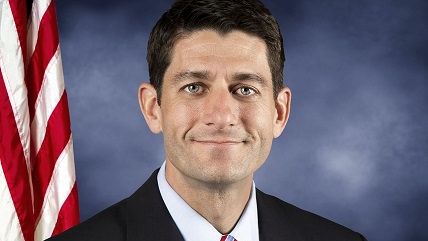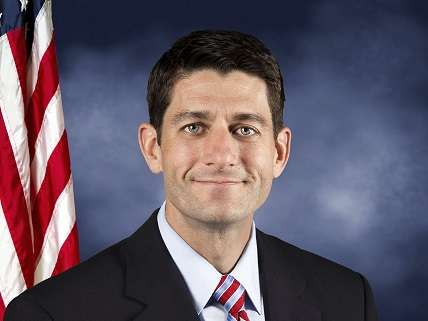Incoming House Chairmen: It's Big Government All Around


Republicans successfully campaigned against the excesses and failures of the Obama administration in keeping control of the House and regaining control of the Senate. In the process, there was no shortage of promises to rein in our bloated, debt-ridden federal government. History isn't on the GOP's side.
A strong indicator of whether Republicans are truly, seriously, finally ready to chop government and promote free market policies is whether or not the people selected to head the various House committees have shown a commitment to those principles. After all, if government is to be cut, it'll be up to the appropriations and authorizing committees to steer legislation that gets it done.
Although the committee heads for the next Congress haven't been confirmed by the full Republican conference, it's pretty much a done deal once the House Republican Steering Committee has made its recommendations. Steering, which is controlled by GOP leadership and friends of leadership, has made its picks. So let's take a look at some of the policymakers who will be in charge—particularly the committees that have a sizable impact on the size and scope of the federal government.
The bottom line: It doesn't look like the GOP is truly, seriously, finally read to chop the federal government.
Appropriations: Hal Rogers (KY)
The appropriations committee exists to do one thing: spend taxpayer money. With its "power of the purse," appropriators are responsible for the annual parceling out of federal funds through 12 appropriations bills targeting particular government functions.
Rep. Hal Rogers (KY) will remain its chairman. Nicknamed the "Prince of Pork" because of his zeal for sending taxpayer money back to his district, Rogers is an old-school establishment spender. Thanks to Congress (accidentally) agreeing to limit discretionary spending via the 2011 Budget Control Act, Rogers has been kept in relative check. Rogers would like to bust the current budget caps and misses dishing out pork via earmarks. He's currently pushing for an omnibus appropriations bill that would fund the government for the rest of fiscal year 2015. The preferable course would be to pass another continuing resolution until the GOP takes complete control of Congress in the New Year when it would have more power over spending (of course, that generously assumes the GOP will actually do something constructive with regard to spending cuts). Regardless, Rogers is not—and will never be—of help in pursuing a smaller federal government.
Agriculture: Mike Conaway (TX)
Farm bills are born in the agriculture committees. Conaway is a vocal supporter of the farm bill as it exists currently and he has already made it clear that he supports keeping the federal trough flowing to wealthy farmers, albeit in what he thinks is a more "free-market way." The uncomfortable truth, however, is that subsidies aren't free-market. Conaway also says that he wants to review the food stamps program and notes that "every federal dollar spent is a dollar taken from a hardworking American." That's true, but it's disturbing that he has no problem taking dollars away from hardworking Americans and handing them over to his mostly wealthy backers in the agriculture industry.
Armed Services: Mac Thornberry (TX)
On the bright side, Thornberry acknowledges that the Pentagon's procurement system is a mess and intends to do something about it. However, the best way to make the government more efficient at doing something is to give it less to do. Unfortunately, Thornberry is a typical conservative when it comes to supporting an expansive foreign policy agenda. He supports the United States' global military empire and he supports spending more money on "national defense" than the current budget restraints allow.
Budget: Tom Price (GA)
Rep. Price replaces Paul Ryan on the Budget Committee and is thus responsible for creating the annual House version of a budget blueprint. Price was a supporter of outgoing Chairman Ryan's "Path to Prosperity." While arguably better than the status quo, it called for "saving" the federal government's massive entitlement-welfare state, "fixing" the overgrown "safety net," and spending more money on the Pentagon. That makes him a strong conservative—not necessarily a proponent for limited government.
Education & the Workforce: John Kline (MN)
Rep. Kline retains the Education and the Workforce (i.e, labor-related programs) gavel. He says that "we can no longer accept a broken [education] system," but he's only interested in tinkering with the federal interventions that helped break it. The federal government should be removed from the issue of education, period. Unfortunately, Kline hasn't moved the ball in the direction and isn't expected to do anything differently this time around.
Energy & Commerce: Fred Upton (MI)
Rep. Upton retains the Energy gavel, which should be remembered for passing the so-called "No More Solyndras Act" in 2012. Not only did the legislation do no such thing, Upton and most of his Republican colleagues voted against an amendment that would have actually ended the Title 17 energy loan program. Upton supports an "all of the above" approach to federal energy policy. What that means is the he supports federal subsidies on everything from fossil fuels to "green" energy. President Obama embraces the same approach.
Financial Services: Jeb Hensarling (TX)
Rep. Hensarling remains in charge of the House Financial Services committee. He opposed the TARP bailout and efforts to water down federal flood insurance reforms that were intended to protect taxpayers. Hensarling has also tried to end the federal government's role in backstopping mortgages and he has led the charge against the cronyist Ex-Im Bank. As far I know, he is the only chairman calling for the abolition of any programs.
Homeland Security: Michael McCaul (TX)
Looks like he's pro-Patriot Act, pro-war on drugs, and pro-military empire.
Small Business: Steve Chabot (OH)
The ideal chairman of the House Small Business Committee would seek to have the Small Business Administration abolished. Rep. Chabot, the committee's new chairman, has co-sponsored legislation to "simplify" the SBA loan process, but simplifying something that shouldn't exist in the first place isn't the goal.
Transportation & Infrastructure: Bill Shuster (PA)
Rep. Bill Shuster retains the gavel for the transportation committee that his father, Bud, infamously chaired—and the apple doesn't fall far from the tree. Given Shuster the Younger's methodical rise to the committee's chair, it's not surprising that he embraces an oversized federal role for the nation's transportation and infrastructure needs. That's unfortunate given that now is an excellent time to focus on returning those responsibilities to state and local government, and most importantly, the private sector.
Ways & Means: Paul Ryan (WI)
Rep. Ryan will be focused on tax reform. That isn't happening while Obama is in the White House.
The bottom line is: I won't be holding my breath while waiting for most of these men to shrink the size and scope of government. Though some of them can blame their bad track records on having Obama in the White House, I am afraid that they possess a deeper affinity for big government than their rhetoric suggests.


Show Comments (19)